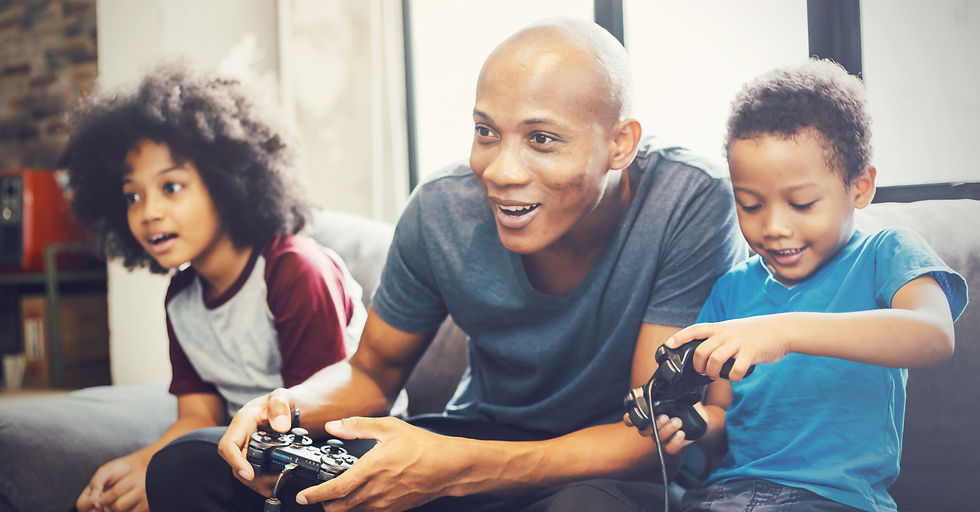We are thrilled to have a guest blog this month from Andy Robertson, a video games expert who has written the book ‘Taming Gaming’ and runs the Family Video Game Database.

In my work with families, one of the common concerns I come across is how video games quickly become something that children do on their own. Unlike in other areas of parenting and caring for children, we can sometimes withdraw from the video game space because it seems so alien.
Negative headlines in the press can exacerbate this issue, as parents are advised to limit, lock-down or get rid of video games. This not only limits screen time but also our ability to engage and understand this important area of children’s lives.
The work I do in my book, Taming Gaming, and on the Family Video Game Database aims to help parents understand games and grow in literacy and confidence so they can play an important role in this area just as in other parts of life.
Parents can look up the games their children are playing to find a simple overview, age rating, costs and online interactions. If they find these are not appropriate, the database suggests younger-rated games at the bottom of each page.
For example, you might look up the game Rust on the database - a very popular search that parents are currently making. Once you have read the page, you might decide that Rust is not for you, and instead direct your children to more appropriate games listed at the bottom as alternatives: Portal Knights (PEGI 7) or Subnautica (PEGI 7). If you want to see which video games parents are checking in the database each week, you can see this on our Top Video Game Worries page.
But one of the most important things we have done on the database is to help parents find games they can play with children. For online games this is really important. If you can start playing simple online games with your child they will learn to be open about these experiences. Not only will they develop good habits but they will be more likely to tell you about things that worry them online when they are older.
The First Steps Into Online games page offers suggestions of simple online games you can play with children as young as seven or eight, to get them ready for online play when they are older. Visiting other people’s islands in Animal Crossing, racing with strangers in Fall Guys or even exploring the beautiful landscape with other people in Sky, are a great way to learn about online play.
Like getting used to the big swings, slides and roundabouts in the playground, this can come with the odd mistake. But doing this together means that you and your child can learn from this. Not only that but you model an open conversation about the ups and downs of playing online.
It’s a small step, but in the families I work with it has transformed the parenting approach. It’s also often a lot of fun.

Andy Robertson
Guest blogger





















Comments